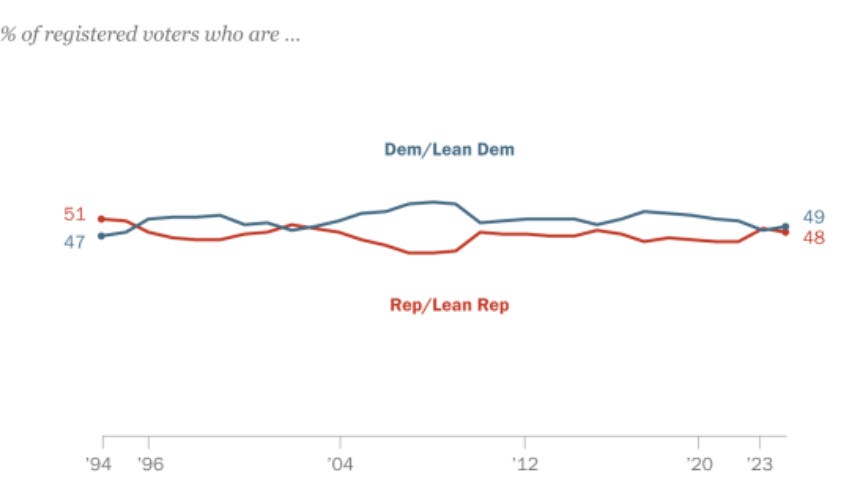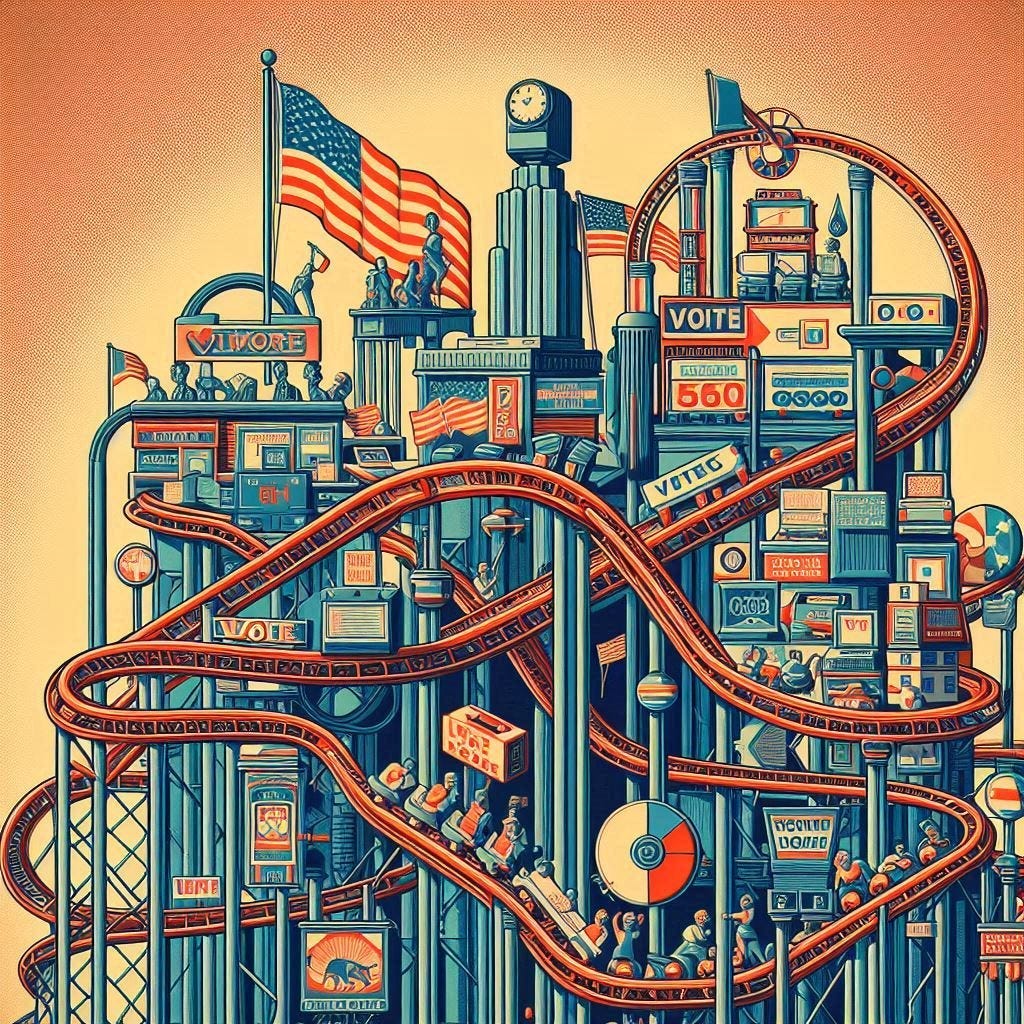Are Republican women, angry about abortion, lying to their husbands and pollsters? Are pollsters over-compensating for having missed non-college white men? Or are non-college white men again being under-counted, and angry Republican women shouting into telephones and ranting on surveys? Are third party candidates skewing the numbers?
What about the surge in Black men for Trump, Hispanics split on immigration, and the Biden backlash on the economy? Will there be an “October Surprise,” and favoring whom? What about the billion dollars the Harris campaign has raised, while Trump last week chastised his mega-donors? Is Elon Musk cool or a technocratic buzz kill? WTF is going on?
Knowledge is power, but too much data can get people lost in the weeds. Beginning with the end in mind is effective, but not when decision-making becomes the desired outcome itself. Trees for forest, maps vs. territory, tactics over strategy, the problem with predicting results by estimating the current state is increasingly difficult as the system becomes more chaotic.
That the Presidential race, a mere three weeks before election day, is “neck-and-neck” and “within the margin of error” seems to shock people, yet should come as no surprise. After all, the percentage of Democratic (49) to Republican (48) voters is nearly identical according to Pew, a consequence of steadily mounting vitriol and polarization over the past two decades:

Of course the Presidential election is based on electors from the states and not the “popular vote,” making swing state citizens key, and of course registered and “undecided” voters are substantial enough in these states to tip the scales — and these are exactly the segments of voters that strategists from both parties are trying to woo. But enough already with “the polls”!
Everyone senses that the polls have skittered off the rails — especially since 2016 — in overall predictive accuracy. Part of the problem, as Nate Silver discusses in gamblers’ terms, is the public’s misunderstanding of statistics. Card sharps live and die off playing the odds long term, not short. An election is like going all-in on your first hand, then drawing conclusions.
But an even bigger problem with closely tracking the polls, counterintuitive mathematics notwithstanding, is the negative feedback loop created by obsessing over them. Akin to the quirkiness of quantum mechanics, where observing a system changes the system you’re observing, the results of moment-in-time polling can influence cumulative decision-making.
In other words, voters are always triggered by polling results, whether or not they are favorable or unfavorable to their preferred candidate. Trump is down, claiming pet-eating Haitians! Trump is up, claiming pet-eating Haitians! Harris rocked the debate, but she’s losing steam! Jill Stein is capturing 1% of the vote, bad news for Dems! OMFG, please stop already.
Don’t get me wrong, I’m not saying polling should stop, or their results ignored. The data is valuable to campaign strategists, who need as much visibility as they can get into the “market” of the electorate, while of course the media feeds off the frenzy of the numbers going up and down, drama the fuel of compelling storytelling that gets the eyeballs and ad dollars.
I’m looking at you, the voter, and suggesting that too much is too much when trying to understand what’s going on, and ultimately the move you’ll make come election decision time. Good news, or bad news, can equally backlash, motivating or disincentivizing you to support your preferred candidate because they’ll likely win, or likely lose… See what I mean?
The whole point of free and fair elections is to empower voters to elect government people who make laws that reflect the peoples’ values, and help enforce them. So vote according to your conscience and personal desires, and not those of pollsters, pundits, media companies, and the perverse and now random zeitgeist of fluctuating, irrelevant numbers.
Who will win in November? At the moment, why should we care? Let’s let the electorate decide, do our best to ensure everyone who can vote should and will, and that their votes will be fairly counted. Less focus on polling and predictions, and more on reducing gerrymandering and other genuine issues will go a longer way to keeping America great right now. Vote!





All commercial polls done for public consumption are push polls, designed to shape public opinion, rather than measure it. They only have to be close to right in the last week, because those are the only polls that are measured against reality. The rest of the time they can be whatever the pollsters desire based on what message they want to send.
Private (campaign) polls have a lot more incentive to be correct, because real money is on the line there, as campaigns want to know where to direct their efforts. Yet, even then, like with Hillary in 2016, even internal polls can be skewed based on the campaign believing their own bullshit.
National polls mean nothing as there are 51 separate elections, not one big election, and it's difficult to accurately poll the swing states for a variety of reasons, primarily turnout. Yes, this percentage of likely voters favors Trump over Kamala, but in the end, will they actually vote?
Finally Nate Silver went from being a genius to being a clown over the years, especially since 2016. His models no longer accurately reflect reality because his head is so far up his ass that he can't see the real world anymore.
So, it's a close race. How close? I have no idea. Trump has all the energy, but he did in 2020 too, so that means nothing.